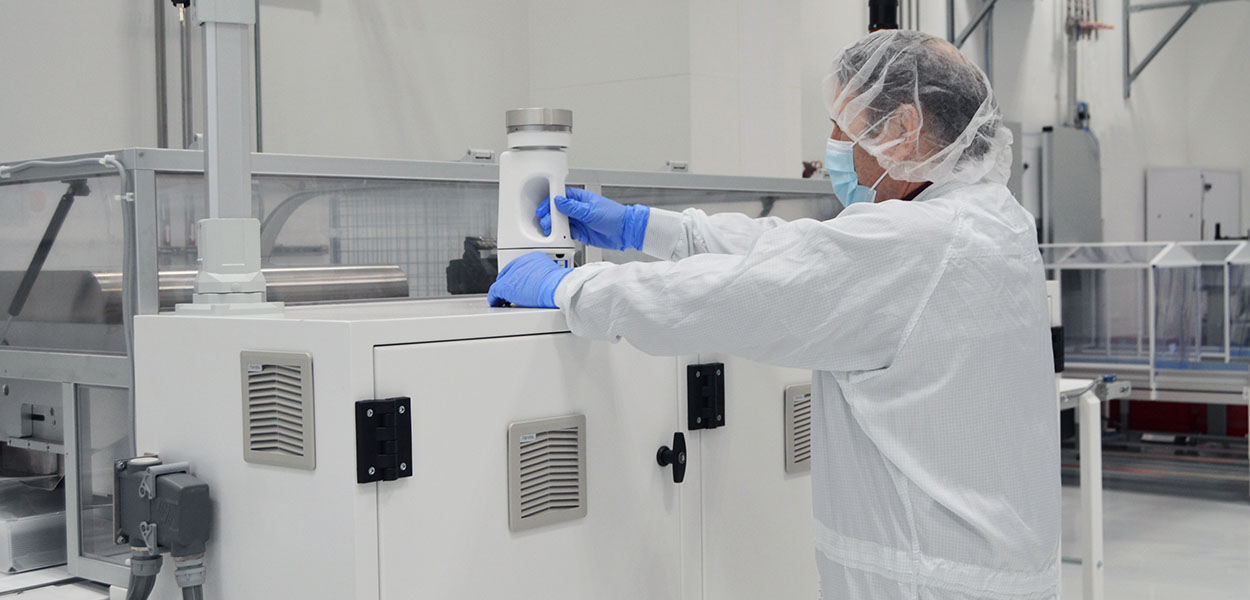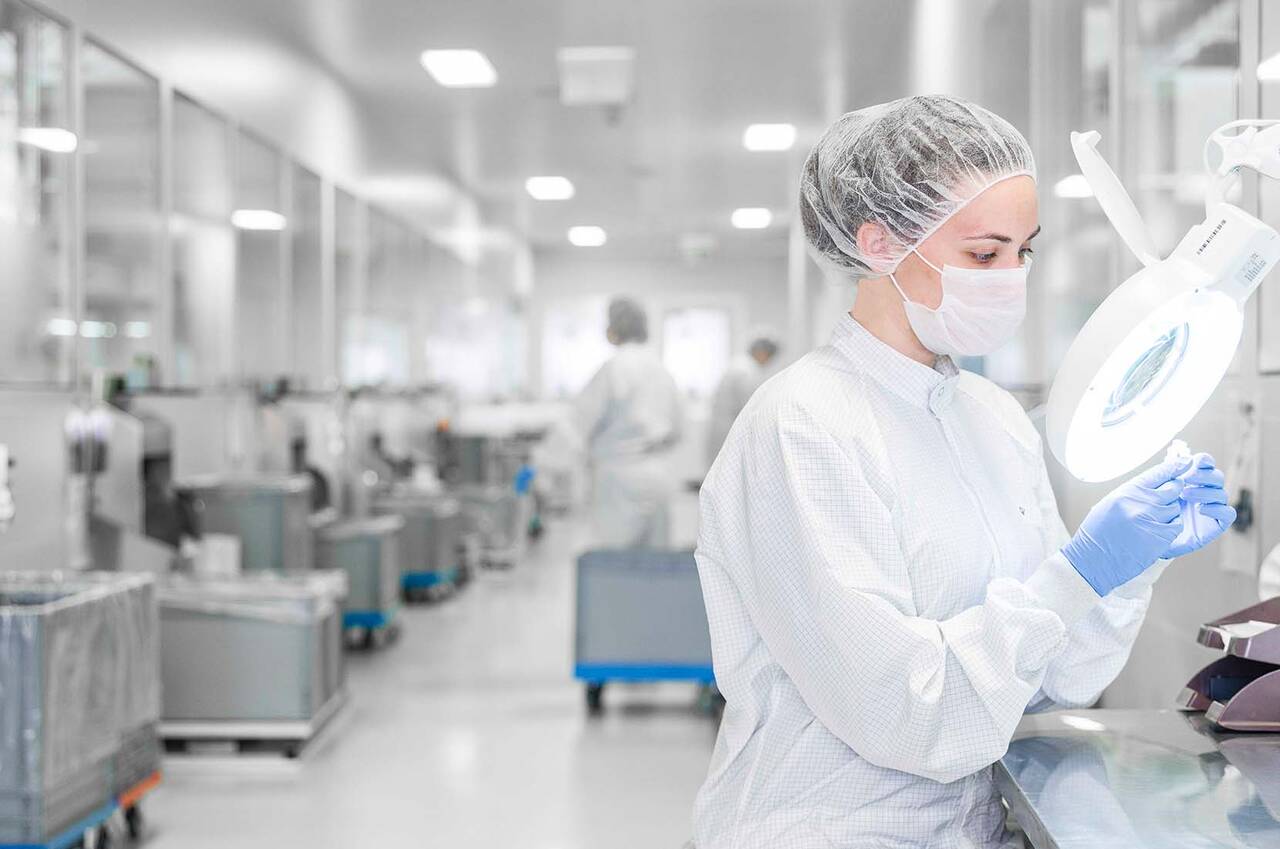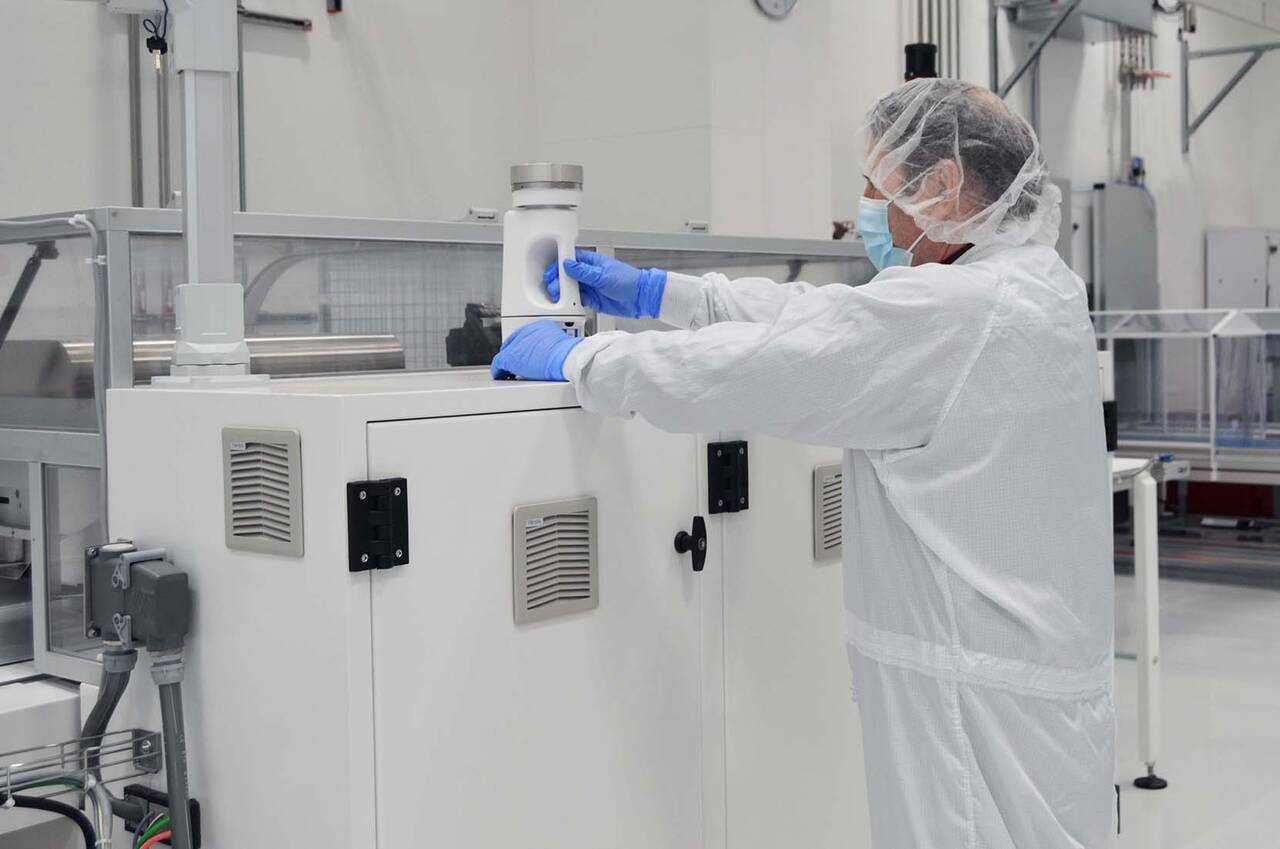Wirthwein Medical GmbH & Co. KG gives top priority to the safety of patients and users. GMP-compliant production in clean rooms plays a part in this as well. The plastics expert produces over two billion plastic components and systems per year for the diagnostics, pharmaceutical and medical technology industries, a large proportion of which is manufactured under GMP conditions in clean rooms. The company in southern Hesse also manufactures plastic components in several GMP-compliant clean rooms to meet the needs of the current Corona situation.
Wirthwein Medical GmbH & Co. KG delivers premium product quality to its customers in the life sciences industries. Together with its business partners, the company strives every day to meet the high demands placed on packaging materials and plastic components, thereby supporting its customers in their responsibility for the health of millions of patients around the world. The consistent focus on quality along the entire value chain forms the basis for a consistently high product quality.
Good manufacturing practice (GMP) and production in GMP-compliant clean rooms play an important role here.
The principles of Good Manufacturing Practice are applied in the pharmaceutical industry for the production of medical products, as well as for pharmaceutical and other sensitive packaging materials, and for components in medical technology and medical diagnostics.
Implementing GMP requirements in the company
A look at the GMP regulations, such as the EU GMP Guideline for Medicinal Products, shows:
The requirements are very extensive, the adaptation to the conditions of the packaging production and the implementation in the company require time and great care. This ensures, for example, that the company only employs staff who is qualified and trained in their tasks, and observes special hygiene measures and clothing regulations in the production area. Contamination and cross-contamination of materials and products are also prevented. All materials used are clearly labeled to ensure batch traceability along the processing. A process for handling complaints and possible deviations is established as is a program for self-inspection, i.e. the implementation of internal audits. "These self-checks also push the continuous improvement of the quality management system in the company", explains Quality Manager Dr. Sabine Moter. Likewise, a "change control system" is in place, i.e. a system for the documented monitoring of changes that could potentially have an impact on the quality of the delivered product.
Qualification and validation
Through systematic qualification and validation measures, Wirthwein Medical GmbH & Co. KG ensures stability in the manufacturing process and the corresponding quality of the end products.
Basically, during the qualification of equipment, proof is provided that systems, devices or peripherals with the technology used are suitable for the intended task, work perfectly and deliver results that conform to specifications. The qualification comprises the familiar phases of Design Qualification (DQ), followed by Installation Qualification, Operational Qualification (OQ) up to Performance Qualification (PQ). If necessary, e.g. after modifications, a requalification is carried out. The aim of validating processes and methods is to prove that the process runs reproducibly and meets the previously set requirements. The scope of qualification and validation is determined on the basis of risk. Thus, Wirthwein Medical GmbH & Co. KG also meets the additional GMP-relevant requirements for the verification and qualification of equipment, devices and facilities as well as for the validation of manufacturing processes and products. The test equipment and measuring systems used in quality control are also checked to ensure that they meet the measurement requirements. A measurement system analysis (MSA) is carried out for this purpose.
The measures for compliance with GMP requirements and good documentation are an integral part of quality management at Wirthwein Medical GmbH & Co. KG. These measures are supplemented by further requirements that customers place on packaging quality and packaging production, often in accordance with GMP guidelines.
Good documentation is a key component of the regulations of Good Manufacturing Practice. All activities are to be described in advance and carried out according to the specification, and the execution is to be documented carefully and promptly. For complete documentation, the company has a central document management system in which the quality-relevant standard documents such as process descriptions, work instructions and forms are stored. Corresponding verification documents are also stored there. All documents are subject to a defined release process so that only valid forms are used, which is also a GMP requirement. At the same time, the release and signature regulations are FDA-compliant, and thus also meet the requirements of the US Food and Drug Administration, which monitors the safety of food and drugs in the USA. The document management system (DMS) enables both the quick retrieval of documents and the training of staff in the required processes and documents. Proof of effectiveness can also be created by answering test questions directly in the DMS.
All quality-relevant data throughout the entire product life cycle are recorded in a quality management software package. “This provides an efficient structure for mapping specifications, results and functions in quality assurance, quality management and test equipment management," explains Head of Quality Management André Neubauer.
Since 2019, the plastics expert Wirthwein Medical GmbH & Co. KG has also been certified according to DIN EN ISO 15378 (primary packaging materials for pharmaceuticals) in addition to DIN EN ISO 9001 and DIN EN ISO 13485. Here, the requirements of the ISO 9001 standard are combined with the requirements of Good Manufacturing Practice (GMP) specifically for primary packaging materials.
The quality management system of Wirthwein Medical GmbH & Co. KG thus fulfils the high requirements of the standards for pharmaceutical primary packaging and for medical devices. Preparations for registration with the US Food and Drug Administration (FDA) as a contract manufacturer are currently underway.
Production of blood analysis systems in the GMP clean room
By order of several market-leading diagnostic companies, Wirthwein Medical GmbH & Co. KG produces in several ISO class 7 clean rooms, for example, a modular diagnostic system consisting of containers, matching bottles and the associated components and closures. These components are manufactured using injection molding and blow molding processes.
The diagnostic system is used for more than 100 test procedures for automated blood analysis, including Covid-19 antibody tests. A Corona antibody test can be used to determine whether antibodies against SARS-CoV-2 have formed in the body. The antibody test is done by blood test. Further examples are various transparent diagnostic systems with high demands on purity and, above all, the optical requirements for the most diverse applications in blood diagnostics, which are used worldwide.
What are the special features of a GMP clean room?
A large number of medical devices have to be manufactured in clean rooms under GMP guidelines. But what is the difference or similarity between GMP clean rooms and ISO-classified clean rooms? The clean room classification according to DIN EN ISO 14644-1 is based on the number of particles in the room air. GMP clean rooms according to EU GMP guidelines, on the other hand, are checked for airborne and microbiological contamination, whereby the classification for airborne particles is based on the values of DIN EN ISO 14644-1. Classification according to GMP Annex 1 is based on clean room classes A, B, C and D, with class A being the cleanest. Wirthwein Medical GmbH & Co. KG produces customized system solutions and assemblies in GMP classes C and D. A dedicated internal clean room officer monitors the particle concentration and the microbiological parameters.
Microbiological colony count on surfaces is determined by means of swab tests or smears. Surfaces are "swabbed" with swab plates or swabs of the objects or surfaces to be examined are applied directly to a solid sterile nutrient medium. Nutrient media are given to the plates on which bacteria, viruses or fungi can grow. For this purpose, the plates are incubated in an incubator and the resulting cultures are examined for germs, especially pathogens of infections. In the event of exceeding limit values or clear trends, countermeasures are taken, such as additional cleaning steps and the elimination of sources of contamination. To prevent germ growth, strict hygiene measures are observed in the clean rooms. Zone and clothing concepts as well as a defined entry procedure into the clean rooms are mandatory. The employees of Wirthwein Medical GmbH & Co. KG are regularly trained for this purpose.


